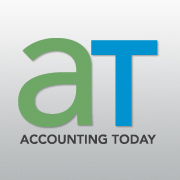The American Institute of CPAs and CPA Practice Advisor are pleased to partner for the 2019 Most Powerful Women in Accounting Awards, given annually to 25 women leaders who are helping to define and advance the profession.
See below for the full list of this year's honorees, with links to learn more about them.
The joint administration of the award is part of the AICPA’s ongoing efforts to promote inclusiveness and create more opportunities for women to attain leadership positions in both public and management accounting.
“We’re excited to work with CPA Practice Advisor to recognize some of the best and brightest in the profession,” said Jacquelyn H. Tracy, CPA, CGMA, chair of the AICPA Women’s Initiatives Executive Committee (WIEC). “Year in and year out, this is a highly impressive group of women that we hope to give even more visibility as role models and pathfinders.”
The WIEC sponsors research, mentorship and networking opportunities, and oversees the annual Women’s Global Leadership Summit.
Members of the AICPA work with CPA Practice Advisor to select and promote award winners each year. The AICPA will continue to offer its “Women to Watch” awards, which – in collaboration with state CPA societies – recognize experienced and emerging women leaders.
“Now in its eighth year, the ‘Most Powerful Women in Accounting’ awards recognize women who are not just making a difference in the accounting profession, but who are the difference in the profession – our accounting profession would not be where it is without the impact these influential women are making,” said Gail Perry, CPA, editor-in-chief of CPA Practice Advisor magazine.
Winners were recognized at AICPA ENGAGE, held June 9-13 in Las Vegas. To be eligible, nominees should demonstrate they:
- Are a driving force in creating a culture of innovation or excellence within their firm, or helped, as a vendor, to develop technologies that empower firms to be more productive and profitable
- Have reached a level of management and ownership within their company, with demonstrable impact on its success
- Actively mentor those following in their footsteps
Introducing the 2019 AICPA/CPAPA Most Powerful Women in Accounting:
Tommye E. Barie, CPA - Succession Institute.
Samantha Bowling, CPA, CGMA - GWCPAs
Danielle Supkis Cheek, CPA, CFE, CVA - PKF Texas
Susan Coffey, CPA, CGMA - AICPA.
Sarah Elliott, CPA, ACC - Intend2Lead
Kimberly Ellison-Taylor, CPA, CGMA - Oracle.
Cathy Engelbert, CPA.CITP - Deloitte
Tracey Golden, CPA, CGMA - Deloitte
Kelly Grier, CPA - Ernst & Young LLP.
Kacee Johnson, MBA - CPA.com and Blue Ocean Principles
Elizabeth Pittelkow Kittner, CPA.CITP, CGMA, DTM - International Legal Technology Assn.
Gail Perry, CPA - CPA Practice Advisor.
Amy Pitter, J.D. - Massachusetts Society of CPAs.
Natasha Schamberger, CPA - Kansas Society of CPAs
Lindsay Stevenson, CPA, CGMA - 1st Financial Bank USA and Origin Evolution LLC
Joy Thomas, FCPA, FCMA - CPA Canada
Michelle L. Thompson, CPA - Cherry Bekaert
Jacquelyn H. Tracy, CPA, CGMA, MST - Mandel & Tracy CPAs
Amy Vetter, CPA.CITP, CGMA - The B3 Method Institute
Sandra Wiley, SHPR - Boomer Consulting
Jennifer Wilson - Convergence Coaching
Candace Wright, CPA, CFF - Postlethwaite & Netterville
===========




